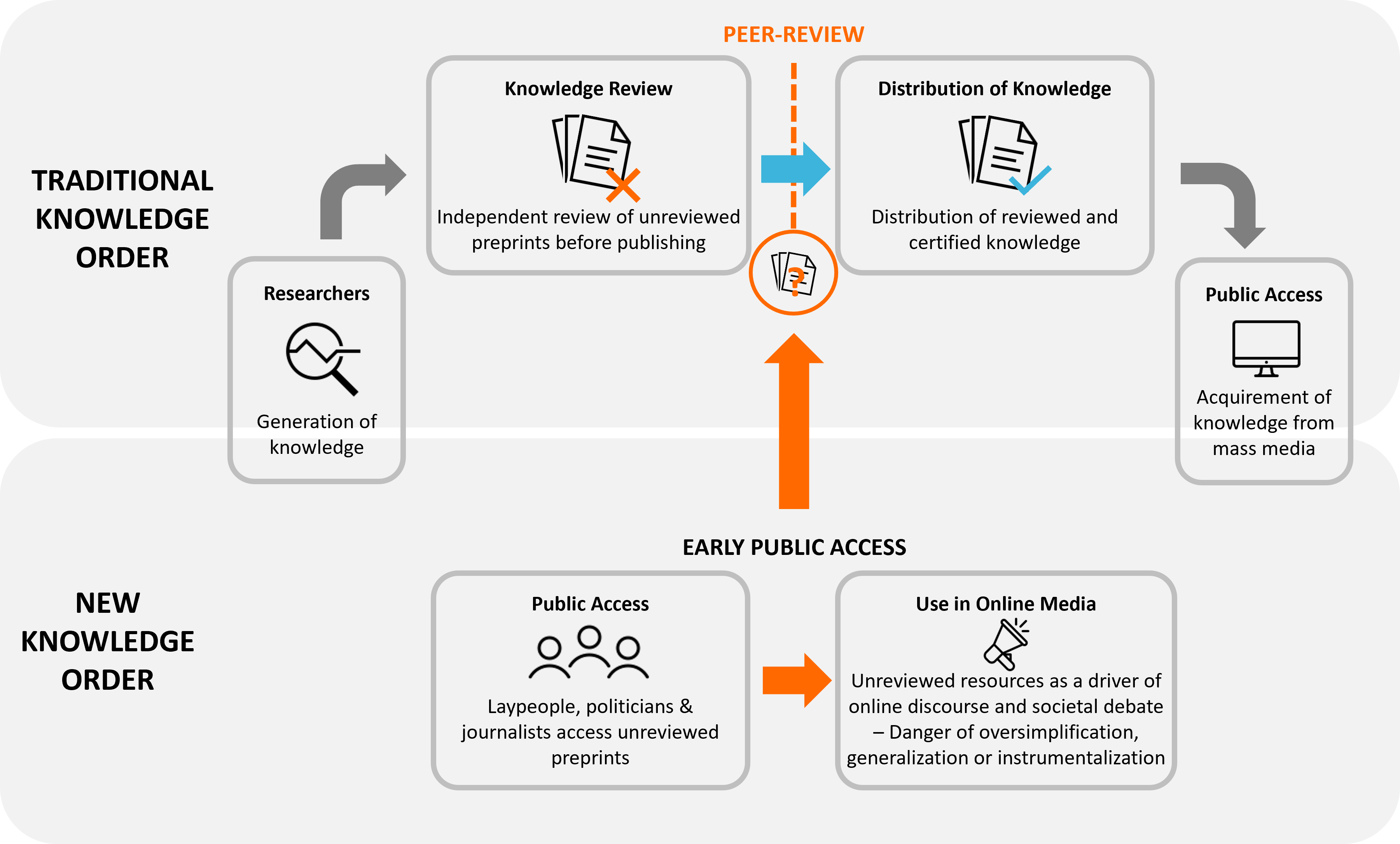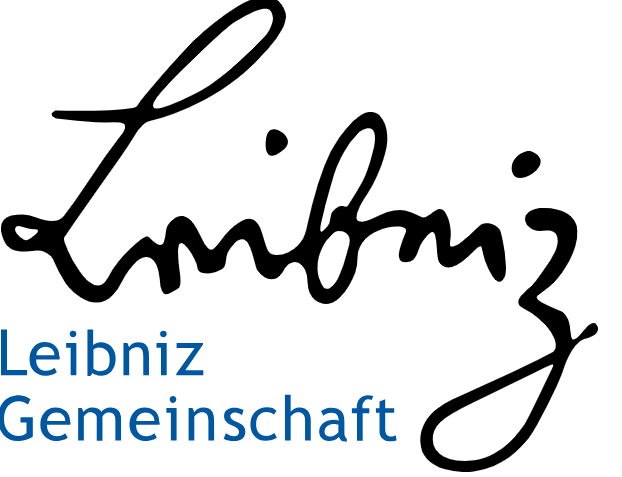
Description
Discourse on scientific knowledge is essential for making informed decisions on urgent societal issues. The COVID-19 pandemic has led to an increased public interest in scientific knowledge, which is reflected in the growing importance of science communication as part of a broader societal discourse in social and online news media.
Recent work ([3], [4], [5]) has shown that such trends are leading to a dissolution of the traditional scientific knowledge order, particularly with regard to the traditional phases, contexts, roles and hierarchies of knowledge production. Risks arise from oversimplification, generalisation or political instrumentalisation of scientific knowledge, which can have a detrimental effect on public perception, decision-making and the polarisation of society. This is all the more problematic as false and controversial information spreads faster than the truth. This project aims to improve understanding of the changing role of science in the emerging knowledge order of the digital society.
Through an interdisciplinary consortium combining expertise from science communication, cognitive and social psychology, and computer science, we pursue three goals: 1) understanding the erosion of the traditional knowledge order in dynamically evolving crisis situations, in particular the dissolution of phases and contexts of production, testing and dissemination of scientific knowledge, 2) understanding the perception of roles, sources and hierarchies in online scientific discourse and their impact on individuals' trustworthiness judgements and knowledge gain, and 3) providing natural language processing (NLP) methods for detecting and classifying roles, hierarchies or scientific statements in large-scale online discourse. The project will focus on scientific discourse in online news and social media, in particular Twitter, and develop new data sources with a particular focus on discourse in DACH countries and Anglophone regions.
Project Runtime
2023-05-01 until 2026-04-30Funding

[1] Neuberger, Christoph, et al. "Der digitale Wandel der Wissensordnung. Theorierahmen für die Analyse von Wahrheit, Wissen und Rationalität in der öffentlichen Kommunikation." M&K Medien & Kommunikationswissenschaft 67.2 (2019): 167-186.
[3] Fraser, Nicholas, et al. "The evolving role of preprints in the dissemination of COVID-19 research and their impact on the science communication landscape." PLoS biology 19.4 (2021): e3000959.
[4] van Schalkwyk, François, and Jonathan Dudek. "Reporting preprints in the media during the COVID-19 pandemic." Public understanding of science 31.5 (2022): 608-616.
[5] Neuberger, Christoph, et al. "Der digitale Wandel der Wissenschaftskommunikation" Berlin-Brandenburgische Akademie der Wissenschaften, 2021.